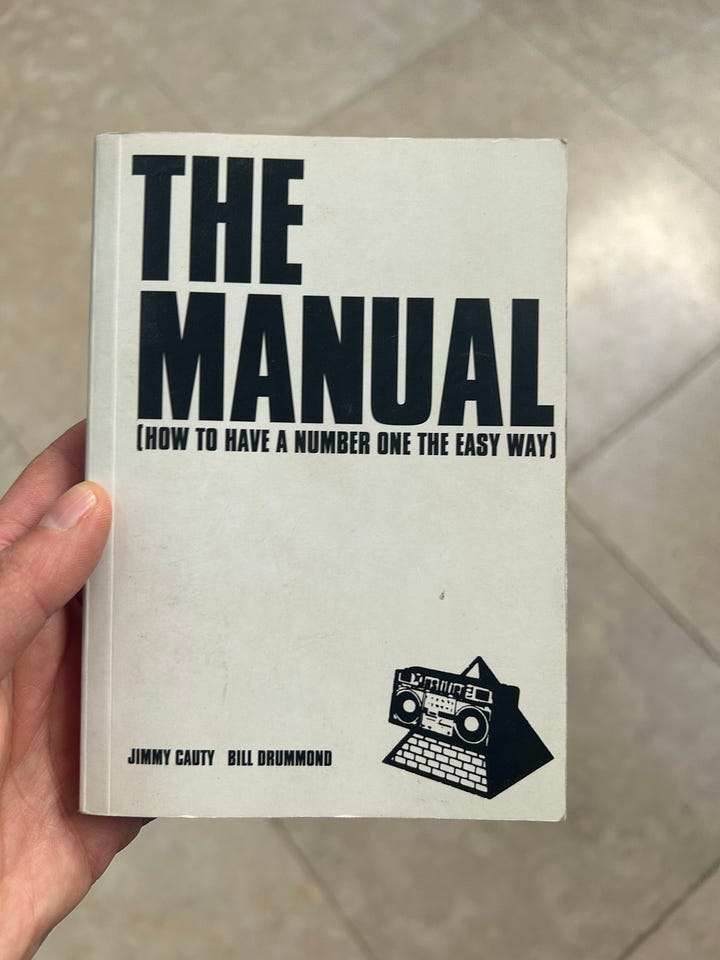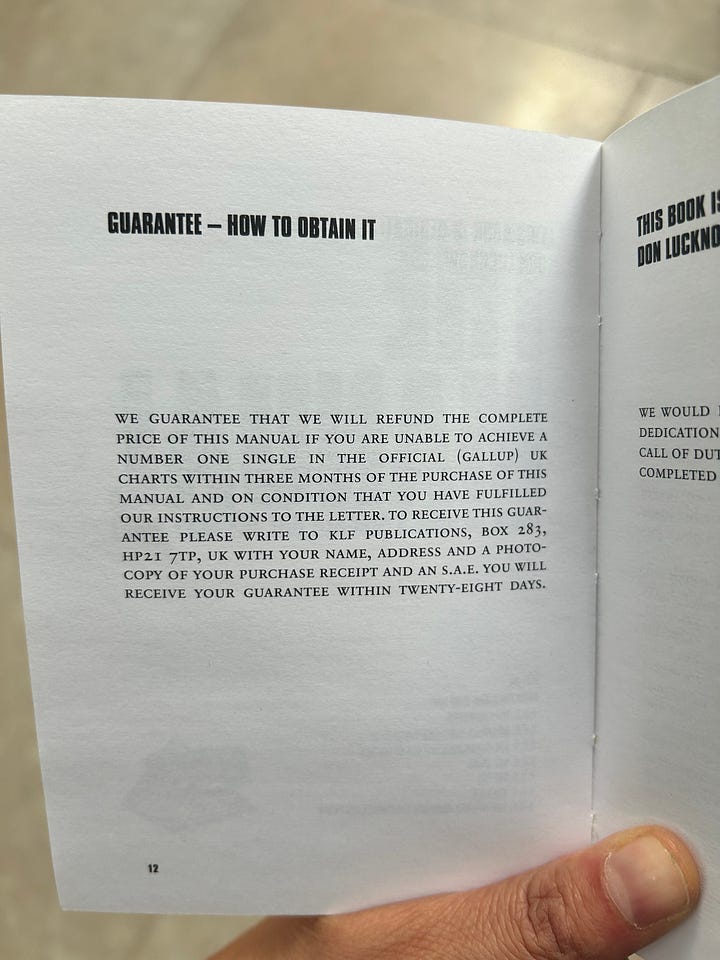In 1988, Jim Cauty and Bill Drummond, AKA the KLF, published The Manual - How to Have a Number One the Easy Way. A small book, which makes big promises.
If you follow the step-by-step instructions to the letter and fail to get a Number One in the official UK single charts within three months, the KLF guarantees to furnish you with a full refund.


I bought my copy 25 years ago, which was smart thinking on my part because they are currently priced £144.99 on Amazon. That would be some refund. I never tried to get a UK Number One. Well, not this way. But I learned a lot from it.
I was thinking about The Manual this week when I was talking about the Oasis reunion on Sky News. Or rather - I was thinking about a specific idea from The Manual. It’s essentially this: you may think there was once a golden age of the best music, when sublime creativity bloomed in glorious abundance producing the most wonderful tunes ever made by mankind. But you would be wrong. The magic was actually you.
It was you becoming a teenager, when everything was suddenly bright and alive and full of possibilities. Your golden age of music was when you were aged 13.
When I first read that idea, it really resonated with me. Of course, early nineties music is objectively the best music there is, but I am willing to entertain the idea that it might not be. I cannot grow out of the music I first began to discover when I was 13. (I refer you to my recent post about losing my mind with joy backstage at Jane’s Addiction.) Music returns us to an emotional state in a way that books and films and food can’t. It’s like nothing else.
That feeling has a price - £400 million. That’s how much Oasis are about to rake in from their forthcoming tour. The Gallagher brothers are set to make more money next year than they did in the entire decade of the nineties. While the music hasn’t changed, the way live events work has. Behemoths like LiveNation pay bands enormous lump sums and then take care of everything: venue, promotion, tickets and merchandise, charging fans absurd sums. When I was a grungy little teenager going to see bands I could easily get tickets for £15 in London. Standing tickets for Oasis will cost £150.
£150 to stand behind 80,000 people with a £10 pint of warm beer in your hand, watching a man with his hands jammed in his pockets sing up into a mic as if he were a chick waiting to be fed. On a giant LED screen.
We all know Oasis are getting back together for the money. But the people buying tickets will be paying for the way they remember themselves, not for the music. (I mean really, who would spend that much money on that music?)
Meanwhile, there are so few new bands. Are there any?
I’m not really complaining; I spent a lot of this summer seeing my favourite nineties bands play live. It’s wonderful that so many of them are still going, and coining it in. But when the current 13 year olds are in their forties, and feeling nostalgic about their golden age of music, who are they going to be able to see?
I have been working like a beast trying to meet writing deadlines and recording the second season of my BBC Radio 4 series The Gift (of which, more soon), so my eyes and ears have not caught much else. But I did read Dr Adam Rutherford’s Control - The Dark History and Troubling Present of Eugenics, and felt very silly that it’s taken two years for me to read it. It’s brilliant. Anyone interested in the Collinses brand of pronatalism, which I wrote about in May, will love this book.




The KLF are almost right, in that it is the music that was around when you were in your teens that remains "the best" for your life. I was 13 in 1960, so pre-beat boom and it is that music, from when I was in my later teens, that has stayed with me. Some of the bands (or what is left of them!) are still working and going to see them is a bit like being in a sort of club in that the audience has all grown old together. It'll happen to you!
Aah... Yes it's crazy. Good take Jenny. Paying to chase that feeling. My Substack diary is a good illustration of music hooking you in as a teen, though in me case more Mahler than Manchester! Young T is quite into his Oasis, surpringly. As well as remixes of music from video games.